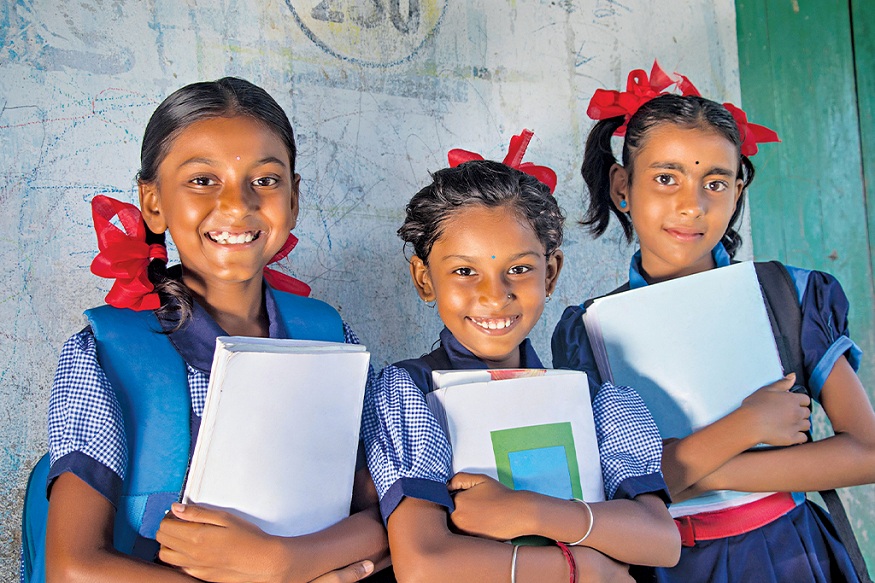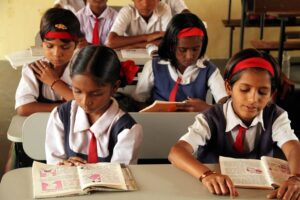The union of education with women’s rights has become a revolutionary social force which reshaped modern society in recent decades. The delivery of quality education to women enables societies to discover multiple opportunities which drive enduring social progress toward inclusive future development.
This blog demonstrates how education functions as an essential base that supports women’s rights progress and generates beneficial social and economic transformations in communities. Let’s get started!
Education as the Foundation of Freedom
Education delivers more than academic learning as it equips people with the capabilities and assurance to take control of their life direction. Through education, women gain access to alternative social roles and escape societal limitations that restrict their choices.
Through education, women gain full access to all life domains including political spheres and business environments, scientific fields, and artistic spaces. Women who receive education develop the ability to challenge old traditions while fighting for their rights, resulting in a society based on informed choices that yield improved possibilities.
Bridging the Gender Gap
Societies encounter a crucial challenge because the continuing gender gap creates restricted possibilities for half of their population. Higher education institutions alongside schools that foster gender equality help remove the historical limitations that have blocked progress for society.
The strategic nature of this move benefits the whole society while simultaneously upholding fairness principles. Providing equal educational opportunities to women and men creates balanced communities which become stronger and more resilient.
Policy Initiatives and Social Change
Offering access to education starts with the establishment of specific government policies and social initiatives. The government implements scholarship programmes, rural area infrastructure development, and educational reforms, focusing on inclusive learning.
Various nations have implemented programmes to serve underprivileged populations because they understand education represents the primary tool for ending poverty cycles. The efforts have shown particular success concerning girl child education in India since specific policy implementations produced substantial progress in school attendance and student retention.
The Role of Community and Cultural Shifts
The formal education system receives its influence from communities which shape how women are perceived and their social status develops. Local leaders and grassroots movements play an essential role in changing social stereotypes while reforming community perspectives.
Society can establish an equal potential environment for all children by backing programmes that promote family and community members to understand the importance of female education. The combined initiatives work toward reshaping society by making education equivalent to opportunity while breaking traditional gender roles.
Economic Implications of Educating Women
The educational development of women creates dual social benefits with strong economic returns. The economic system benefits from every aspect when women receive learning opportunities, helping them advance their careers. Research indicates that women’s educational progress directly relates to economic growth.
Economically developed nations benefit from educated labour forces because they create innovative solutions, achieve higher productivity levels, and start new businesses that strengthen national economies. The entry of women into forbidden industrial sectors has propelled national financial success across multiple global regions.
Empowering Women Through Knowledge
The acquisition of education creates the most straightforward pathway for women’s empowerment. Education gives women independence and lets them participate in civic life while enabling them to fight for their rights. Education teaches women about their legal rights and shows them why they must monitor institutional performance.
The establishment of a just and equitable society depends on this essential knowledge because it allows people to succeed without gender barriers. The educational empowerment of women leads them to embrace leadership positions throughout their communities and broader society which serves as an example for generations to come.
The Ripple Effect on Society
Educating women produces advantages that reach society as a whole. The level of education that women attain leads them to allocate more resources to their families and communities. Mothers who obtain education tend to teach their children the importance of learning, resulting in long-term generational societal advancement.
The extended benefits from this positive impact create stronger families that drive overall community development in society. The communities that provide equal learning opportunities to women demonstrate enhanced health outcomes, economic strength, and social unity.
Overcoming Barriers and Future Challenges
Many obstacles still exist while presenting clear advantages. Women face restricted educational possibilities because of cultural traditions and economic limitations throughout numerous geographic areas. The elimination of gender disparities requires governments, non-governmental organisations, and local communities to make sustained collective efforts.
Society needs to change its undervaluing attitude toward girls while simultaneously increasing educational resource availability for all students. The path to sustainable progress requires ongoing support through policy changes and community participation, to provide all girls with equal opportunities to achieve their maximum potential.
Final Thoughts
Education intersecting with women’s rights creates an effective route for transforming entire societies. Societies that invest in girls’ education in India will open new sources of potential which in turn drives economic development while creating more stable and equal communities.
The path toward universal human success continues as education-based women’s empowerment is the fundamental driver for achieving this objective. Our joint efforts to establish inclusive educational settings will produce long-term advantages that affect communities and economies across multiple generations.
The practical approach of educating and empowering women leads to a better world. The provision of success tools to all women creates a future that embraces opportunity and innovation and shares prosperity with everyone.




Be First to Comment